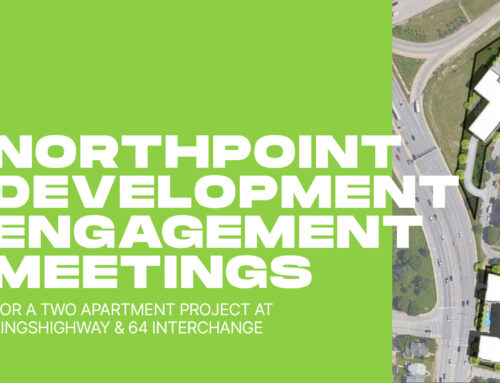October’s meeting included nominations for the 2021 Board, a presentation on Proposition R, and a Q&A with Alderman Joe Roddy.
20 OCTOBER 2020 / 6:45 PM / Zoom
MINUTES
6:45 Meeting Called to order (Vincent Chewning)
FPSE Neighborhood Business
6:45 – 6:50 pm Announcements (Community)
- COVID Vaccine 101 meeting tomorrow (10/21). Experts from SLU and WASHU will be there as part of a roundtable to answer your questions. The recording of the meeting can be found here: https://youtu.be/F0foQapLEio
- Infrastructure Committee meeting 10/22/20 at 6pm.
General Member: Adam’s Grove is suffering and our section of the neighborhood is getting code violations. What’s the latest with the home repair fund?
Vince: Resources have been sent out.
6:50 – 6:55 pm Treasurer’s Report (Steve Chodes)
- No change from last month. But the Board received some dues via Venmo. that needs been transferred from the Venmo account to the bank account.
6:55 – 7:00 pm SLMPD Update (Vince)
- CWE Scene/ WUMCRC Crime Report: https://ccwestsafety.files.wordpress.com/2020/10/fpse-bot-cwe-mc-september2020.pdf
- 17 total crimes in September. That’s about a 59% reduction from September 19. Total crimes in 2020, we’re actually down 4% year to date. And unfortunately we’ve had a 23% increase in crimes against persons for the year.
General Member: Regarding the shooting at Taha’a Twisted Tiki: Does reporting show one incident or the incident as a cluster?
Vince: The Board will need to follow up on that.
7:00 – 7:10 pm 2021 Board Nominations (FPSE NA Membership)
- You can self nominate. Only need to live in the neighborhood or have a business in the neighborhood, and must be a dues-paying member. Dues can be paid by cash, check, or Venmo.
- For roles and responsibilities, check the FPSEA By-Laws here.
- Nominations are as follows:
- Member-at-large nominations: No nominations
- Treasurer: Steve Chodes
- Secretary: Dan Doelling
- Vice President: Brian Adler
- President: No nominations
Board and members vote to extend nominations by two weeks.
Guest Speakers and Discussion
7:10 – 7:25 pm Proposition R (Jake Lyonfields)
- Proposition R u is a ballot measure that would modestly increase property taxes in order to fund early childhood and early childhood education development services, just at the top.
- It is a city wide ballot measure. It’s not a statewide ballot measure.
- It would raise an estimated $2.3 million each year. Those funds would go to the mental health board, which under Missouri state statute, would raise a small amount of property tax and that money would be specifically earmarked for early childcare and ECE development services.
- Those funds would go to the Mental Health Board, which would then as a grant-making body, distribute those funds. Uh, to, to find early childhood in early childhood education services
- What these funds could be used for: Per Missouri state statute, these funds could not be used to fund charter schools, and it could not be used to fund public schools for parochial schools.
- These funds will be relegated to funding development services for providers in the City of St. Louis.
- Highlighting the importance of this particular time in individual’s lives.
- How important the early years of someone’s life are is the extent to which we, as a society, don’t invest in it. We have, in my opinion, criminally low state subsidies for early childcare and early childhood education providers across our state. And we also don’t invest on this very much at all at the local level. And these are the years of someone’s life where faculty will influence the entire rest of their lives. In fact, there’s a Nobel prize winning economist named James Heckman who pioneered research in this area and showed that investing in high quality, early childcare and early childhood education. You’ll do a 13% return on investment for society, and that took the form of lower crime rates, higher lifetime earnings, better social emotional skills, and so on and so forth.
- Prop P would provide a means of funding the kind of social services that are often key to making sure that early childcare and early childhood education is most impactful. Examples how this funding could be used include:
- to invest in professional development for the early childcare and early childhood education workforce. There is immensely high turnover in the early childcare and early childhood education spaces. Workers and center directors in this space do not get a lot of time and attention and they aren’t paid very well at all. Pro R dollars could be used to invest in the kind of professional development services that allow early childhood education workers to do their work more effectively and to actually have time and attention and resources invested in them.
- It could also help potentially fund community outreach and recruitment. If anyone here is a parent or a kid who was raised in the City of St. Louis or this region, generally, they might be aware that we do not have a very robust system for identifying early childcare and early childhood education options for kids.
- Investing in in-home and community-based support for social and emotional development. Or, help families stabilize their own situations that allow a more stability within families homes and indirectly benefit the early childcare and early childhood education experiences.
- What I’ve mentioned is by no means strictly how it could be used, and it would be up to the Mental Health Board to distribute these dollars on an annual basis.
- You can learn more about the mental health board and the entities that it funds: https://www.stlmhb.com/
- The Mental Health Board is a public special taxing district that voters created in the early 2000s. It is fiscally independent of the city. elsewhere to supplement other parts of the city’s budget. The Mental Health Board is is financially independent of the city, even though the city appoints the board that oversees the Mental Health Board those dollars would not be able to be pulled away, so to speak and directed elsewhere.
General Member: How is the Mental Health Board going to distribute the funds? Is there a mechanism in place
Jake: Share the underlying concern. What I typically understand is true is that the Mental Health Board will put out RFPs or there’ll be opportunities to submit grants for funds from the couple of different funds the MHB manages. And then there is an administrative process that organizations go through after they’ve submitted those grants in order to be approved to receive funds. Then my understanding is that the MHB continues to give money until it runs out essentially a year, year over year. So I think you’re right to be skeptical that there’s potential for any organization or entity to mismanage public funds. That’s always a risk when you’re making public dollars available to private organizations. So it’s going to be incumbent on us to make sure that those funds are used properly and, also, I believe there’s more detail on the Mental Health Board’s website about what the typical grant-making process is.
- You can contact Jake at jakedlyonfields@gmail.com
7:25 – 7:45 pm Q&A with Alderman Roddy (Joe Roddy, community)
- Will not be running for Alderman in 2021.
- Obviously COVID has had a tremendous impact on the city budget. Biggest challenge has been growing our tax base. What’s happened in the city is as we’ve lost population, we not only lost population, but we’ve also lost our taxing base and as our tax base shrinks, it becomes more and more difficult to provide the services that we need. And we have had been on a 60 or 70 year period of this disinvestment and each of these recessions are getting more and more difficult to recover from. What cities are supposed to do is they’re supposed to keep money in reserve, and we have depleted our reserve a great deal during that period. Ideally you would have 10% of your operating budget in reserve or your general fund. And it has taken us 10 years to recover that. And actually just this last year, we’ve seen a real growth from the earnings tax- a lot coming from Cortex and development that’s occurring in our ward. We actually had a very good year this last year. And we had finally gotten up to that kind of magic number of about 10% or so of our general fund, which was about 40 or $50 million. If that recession had not happened, we would have had a very, very nice surplus and something we haven’t experienced in many years.
- One of the bright spots is that while people have not been buying things in person they’ve been buying more on the internet. And that’s up dramatically. The bottom line is, right now, it looks like we’re close to balancing our budget, but it’s non-sustainable though. And unless we see some pretty dramatic growth of income, the city is going to experience some very difficult, difficult times.
- A lot of this stuff that we’ve done, for example, Cortex, we have entered into these “triple P’s,” these private public partnerships and cortex is perhaps one of the most significant ones that we’ve done on the economic development front. And when we’re reviewing the operations of Cortex and the revenue over there has been dramatic reductions of revenue. As people are working from home, their parking revenues are down And there’s the potential of long-term changes in how people work more and more at home. And that is a great concern, particularly for cities like ours and even larger cities, that’s going to have a tremendous impact on office buildings.
- On retail and so forth: So this a pandemic, the economic fallout from the pandemic could be far reaching and it could be something that may take some years to get behind. One of the big things going on in DC right now is the second stimulus deal. the federal level, in one of the challenges that, uh, one of the reasons why we haven’t been able to get a second stimulus bill passed.
- https://www.stlouis-mo.gov/government/departments/budget/documents/upload/FY21-1stQ-Report-to-Board-of-E-A.pdf
- Infrastructure budget for Ward 17
- $420,000 allocated to the ward (some rolled over from previous years) for FY2020; $100,000 exclusively for FPSE
- $142,000 for FY2021 Ward 17 budget, with $90,000 to Cortex Connector Project. $52k remaining for FY2021 budget.
- PDF of the budget here.
General Member: When will we get the Grove signs back?
Ron Coleman: Met Thursday. Grove CID put out a new RFP; they wanted some clarity on it. There were two bids. Once they decide on somebody, likely at the next meeting, they should be able to move quickly on it. Maybe another month or two.
General Member: We (Infrastructure Committee) have been working on getting crosswalks to be ADA compliant for a long time. We still have work to do, but do you have any sense of at what point we could ask the city to stripe the crosswalks, because we’ve been getting more comments about speeding cars and speed humps and things like that, and at a minimum we need to start with striping the crosswalks, but they can start the crosswalks until the crosswalks are ADA compliant. Do we need to have like a hundred percent compliance in the whole neighborhood to get re-striped?
Roddy: We can’t stripe the crosswalks until the curb cuts have been made. Have they been made yet?
GM: There are a lot of unstripped crosswalks in the neighborhood that need to be re-striped. If we have 6 or 8 or 10 ready to go, can they come in and stripe?
Roddy: As long as there are curb cuts on both sides of the street. The street department is way behind.
Coleman: There’s a funding issue. For ADA rams, once those are installed, which the last round they allocated should be done hopefully in January, then we can paint the crosswalks. If they’re faded, we can replace them, and the street department can pay out of their budget.
7:45 PM Adjournment (Vincent Chewning)
You can listen to the recording of this month’s meeting on Anchor and wherever you listen to your podcasts.
You can download this month’s update below.


